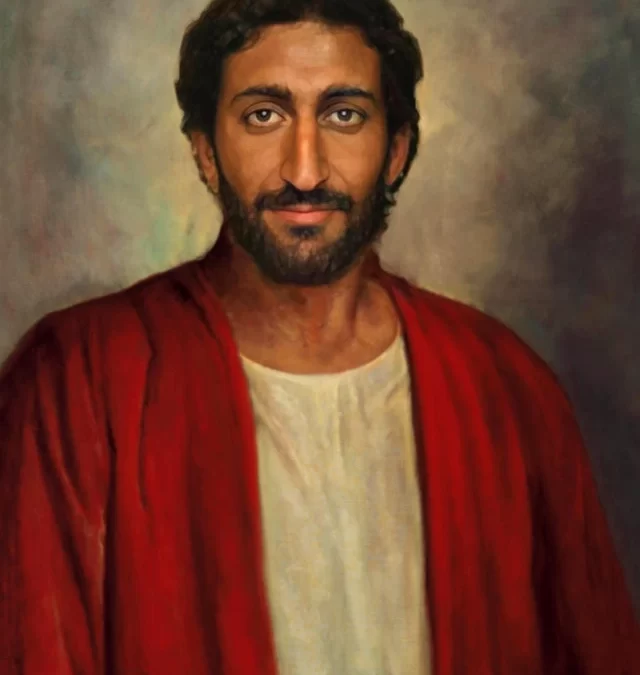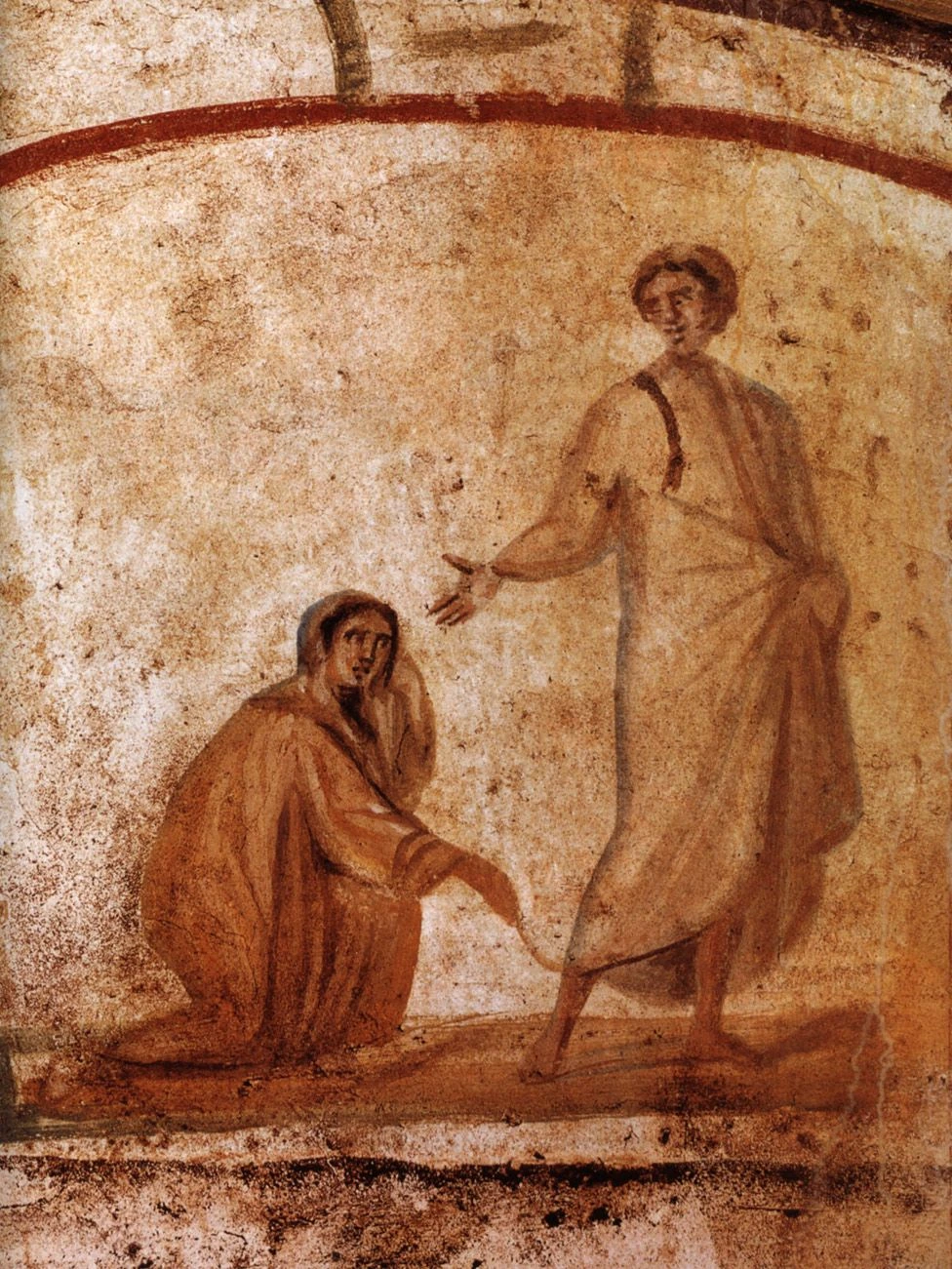
Two thousand years ago, an itinerant Jewish preacher walked across Galilee, gathering followers to establish what he called the “Kingdom of God.” The revolutionary movement he launched threatened the established order resulting in his execution as a state criminal. Within decades after his death, his followers would call him God.
Sifting through centuries of mythmaking, Reza Aslan sheds new light on one of history’s most enigmatic figures by examining Jesus through the lens of the tumultuous era in which he lived. Balancing the Jesus of the Gospels against the historical sources, Aslan describes a man full of conviction and passion yet rife with contradiction. He explores why the early Christian church preferred to promulgate an image of Jesus as a peaceful spiritual teacher rather than a politically conscious revolutionary. Reza grapples with the riddle of how Jesus understood himself, the mystery that is at the heart of all subsequent claims about his divinity.
Zealot yields a fresh perspective on one of the greatest stories ever told, even as it affirms the radical and transformative nature of Jesus’ life and mission.
What is the Kingdom of God, “Go and heal the people, then eat with the people you heal” Non-Violent resistance to Roman occupation/oppression. (1)
The reversal of the social order.
“The first shall be last, the last shall be first” “The hungry should get fed, the fed should go hungry, the rich should be made poor, the poor made rich” (2)
(1) J.D. Crossan’s definition of the Jesus Kingdom of God.
(2) Reza Aslan definition of the Jesus Kingdom of God.
John Dominic Crossan on The Historicity of Jesus
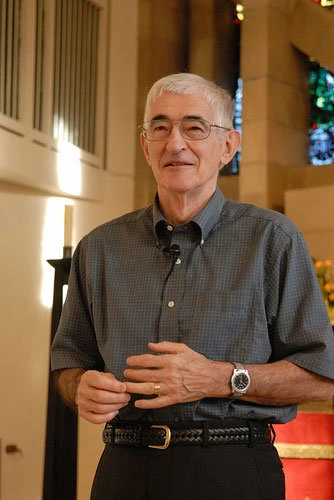
John Dominic Crossan, (born February 17, 1934, Nenagh, Ireland), Irish-born American theologian and former Roman Catholic priest best known for his association with the Jesus Seminar, an organization of revisionist biblical scholars, and his controversial writings on the historical Jesus and the origins of Christianity.
Upon graduating from high school in Letterkenny, Ireland, in 1950, Crossan moved to Chicago, where he joined the Servites, a Roman Catholic monastic order. He has ordained a priest in 1957; he returned to Ireland to study at St. Patrick’s College, Maynooth, and received a doctorate in theology in 1959. D.C. Crossan then looked at the Pontifical Biblical Institute in Rome for two years before returning to his Servite community to teach. In 1965 he began to study at the École Biblique et Archaéologie Française de Jérusalem (French Institute of Bible and Archaeology, Jerusalem), run by the Dominican order. Two years later, Dominic returned to Chicago to join the Chicago Catholic Theological Union faculty. In 1969 he resigned from the Servite priesthood, citing a longing for academic freedom and his intention to marry Margaret Deganais, a professor at Loyola University Chicago; they married that year. He soon joined the religious studies faculty at Chicago’s DePaul University, where he taught until his retirement in 1995. After his retirement, Crossan continued to write and lecture.

The Dangers of Fundamentalism – John Dominic Crossan
New Testament professor John Dominic Crossan discusses the dangers inherent in Christian fundamentalism.
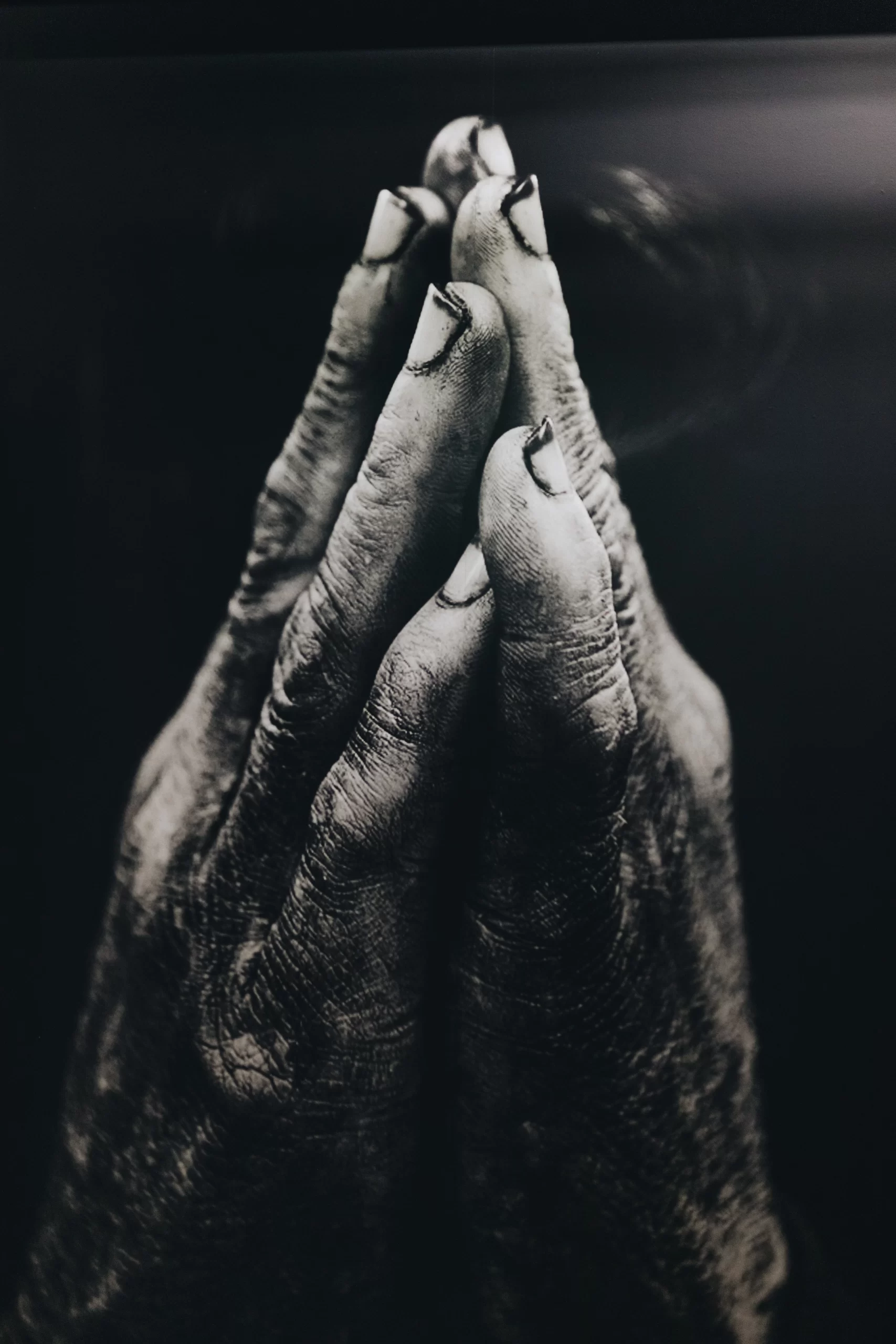
The Jesus of History versus the Christ of Faith
If you lived in first-century Palestine and encountered a charismatic visionary named Jesus, what would you think? Aslan, author of No God But God, profiles Christ as a man of his time; leaving out the centuries’ worth of myths, legends, and beliefs, he draws from historical sources to introduce a passionate, even fanatical, ideologue and revolutionary. http://bit.ly/1hquCTX Founded by Carla Cohen and Barbara Meade in 1984, Politics & Prose Bookstore is Washington, D.C.’s premier independent bookstore and cultural hub, a gathering place for people interested in reading and discussing books. Politics & Prose offers superior service, unusual book choices, and a haven for book lovers in the store and online.

REZA ASLAN is an internationally renowned writer, commentator, professor, producer, and scholar of religions. His books, including his #1 New York Times Bestseller, Zealot: The Life and Times of Jesus of Nazareth, have been translated into dozens of languages worldwide. He is also a recipient of the prestigious James Joyce Award.
In addition to his role as a Consulting Producer on the acclaimed HBO series The Leftovers and the hit CBS comedy United States of Al, Aslan is also the host and Executive Producer of two other original television programs: Rough Draft with Reza Aslan on Topic, and CNN’s documentary series, Believer. He also served as an Executive Producer on the ABC drama, Of Kings and Prophets and on the Emmy-nominated documentary series The Secret Life of Muslims. Lionsgate and producer David Heyman have optioned his book Zealot with a script co-written by Aslan and Oscar-screenwriter James Schamus.
In 2006, Aslan co-founded BoomGen Studios—the premier entertainment brand for creative content from and about the Middle East—which has provided an array of targeted services ranging from strategic messaging to grassroots marketing to publicity and social media outreach to producers, studios, and filmmakers.
Aslan’s first book, International Bestseller No god but God: The Origins, Evolution, and Future of Islam, has been translated into seventeen languages and was named one of the 100 most important books of the last decade by Blackwell Publishers. He is also the author of Beyond Fundamentalism: Confronting Religious Extremism in a Globalized Age (originally titled How to Win a Cosmic War), as well as editor of two volumes: Tablet and Pen: Literary Landscapes from the Modern Middle East and Muslims and Jews in America: Commonalties, Contentions, and Complexities.
Aslan’s degrees include a Bachelor of Arts in Religious Studies from Santa Clara University (Major focus: New Testament; Minor: Greek), a Master of Theological Studies from Harvard University (Major focus: History of Religions), a Ph.D. in Sociology of Religions from the University of California, Santa Barbara, and a Master of Fine Arts from the University of Iowa, where he was named the Truman Capote Fellow in Fiction.
Aslan is a tenured Professor of Creative Writing at the University of California, Riverside, and serves on the board of trustees for the Chicago Theological Seminary and The Yale Humanist Community, which supports atheists, agnostics, and humanists at home and abroad. A member of the American Academy of Religions, the Society of Biblical Literature, and the International Qur’anic Studies Association, Aslan’s previous academic positions include the Wallerstein Distinguished Professor of Religion, Community and Conflict at Drew University in New Jersey (2012-2013), and Visiting Assistant Professor of Religion at the University of Iowa (2000-2003).
Born in Iran, he lives in Los Angeles with his wife, author, entrepreneur Jessica Jackley, and their three sons.
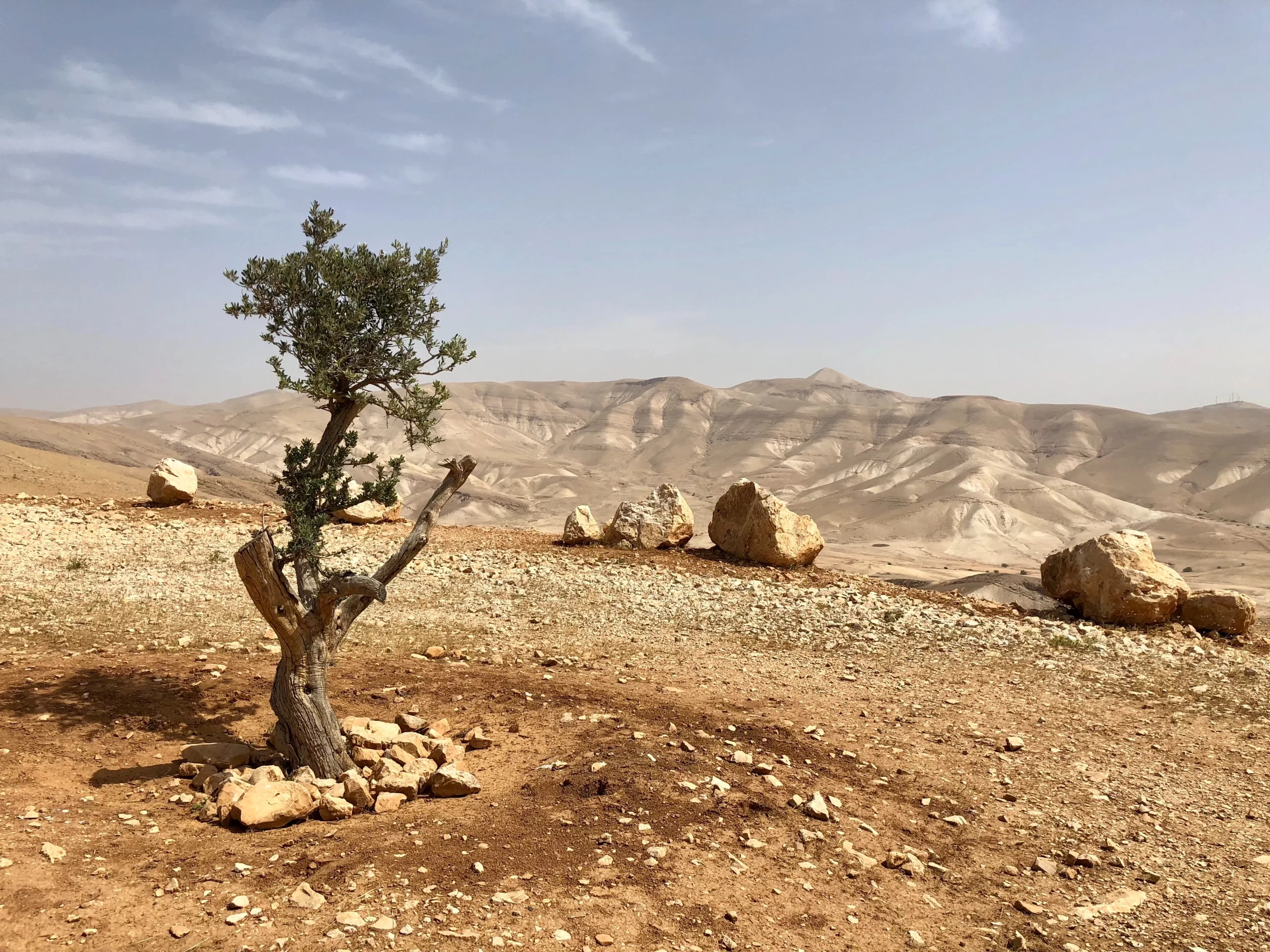
18 Missing Years from the Biblical Records – Jesus’s Journey to India
You are watching a Preview of @GaiaVideo’s Original TV Series ‘Open Minds’https://www.gaia.com/gb-ominds hosted by Regina Meredith – Eighteen years of the life of Jesus is unaccounted for in the biblical accounts of his life. Paul Davids has explored the mysteries of where Jesus was and what he was doing during those missing years. Presented with Special Thanks to @GaiaVideo, WHAT IS GAIA? – https://www.gaia.com/gaia-gregg – the world’s largest online resource of consciousness-expanding content – over 8,000 informative and enlightening films, original shows, yoga and meditation classes, and more that you won’t find anywhere else. WHAT OTHER TV SHOWS DOES GAIA HAVE? – follow this link to learn morehttps://www.gaia.com/gaiatv-gregg
Jesus In India — Presentation by Edward T. Martin
“And Jesus increased in wisdom and stature and in favor with God and man.” —Luke 2:52. This is single line in the Bible that describes the 18 years of Jesus’ life from ages 12 to 30. Where was Jesus during those years?
For those of us curious to know more, let’s look to Edward T. Martin. He is an author and researcher whose findings are showcased in the documentary feature film “Jesus In India,” by Paul Davids. Here, at the Maharishi Dome of the Age of Enlightenment in Austin, Texas, Martin reveals the legends, myths, and historical evidence of Jesus’ life in India.
A few of the more provocative discoveries include: clarity regarding the physical appearance of Jesus, evidence of Jesus’ children, and indications of Jesus’ life after crucifixion.
What and incredible and profound presentation. Growing up in a Catholic home, we were never given any insights into the life of Jesus, and when we did ask, they had no answers or just rebuked. How dare we ask? Our Lord is beyond our comprehension, and His life is beyond our understanding. Eye-opening and fascinating knowledge and much of it makes a lot of sense, filling in the gaps in Jesus’ life from 13-30 years old.

Time to Wake Up 282: Chamber of Carbon
Who was the historical figure Jesus of Nazareth? Not the divine Jesus Christ, but the man shaped by the political, social, and economic contexts of early first-century Palestine? In ‘Zealot: The Life and Times of Jesus of Nazareth’, Reza Aslan, biblical scholar and author of the international bestseller ‘No god but God: The Origins, Evolution, and ‘Future of Islam’, takes us on a journey of the life and times of one of the most influential men in history. In his book, he convincingly shows why and how the likely historical facts were transformed into a very different religious narrative by the writers of the gospels long after Jesus’ crucifixion. The controversy at FOX News – who seemed offended by the idea that a Muslim scholar would write a book about Jesus – aside, Zealot proves to be “a lucid, intelligent page-turner,” according to the Los Angeles Times. This video was recorded on May 20, 2014.

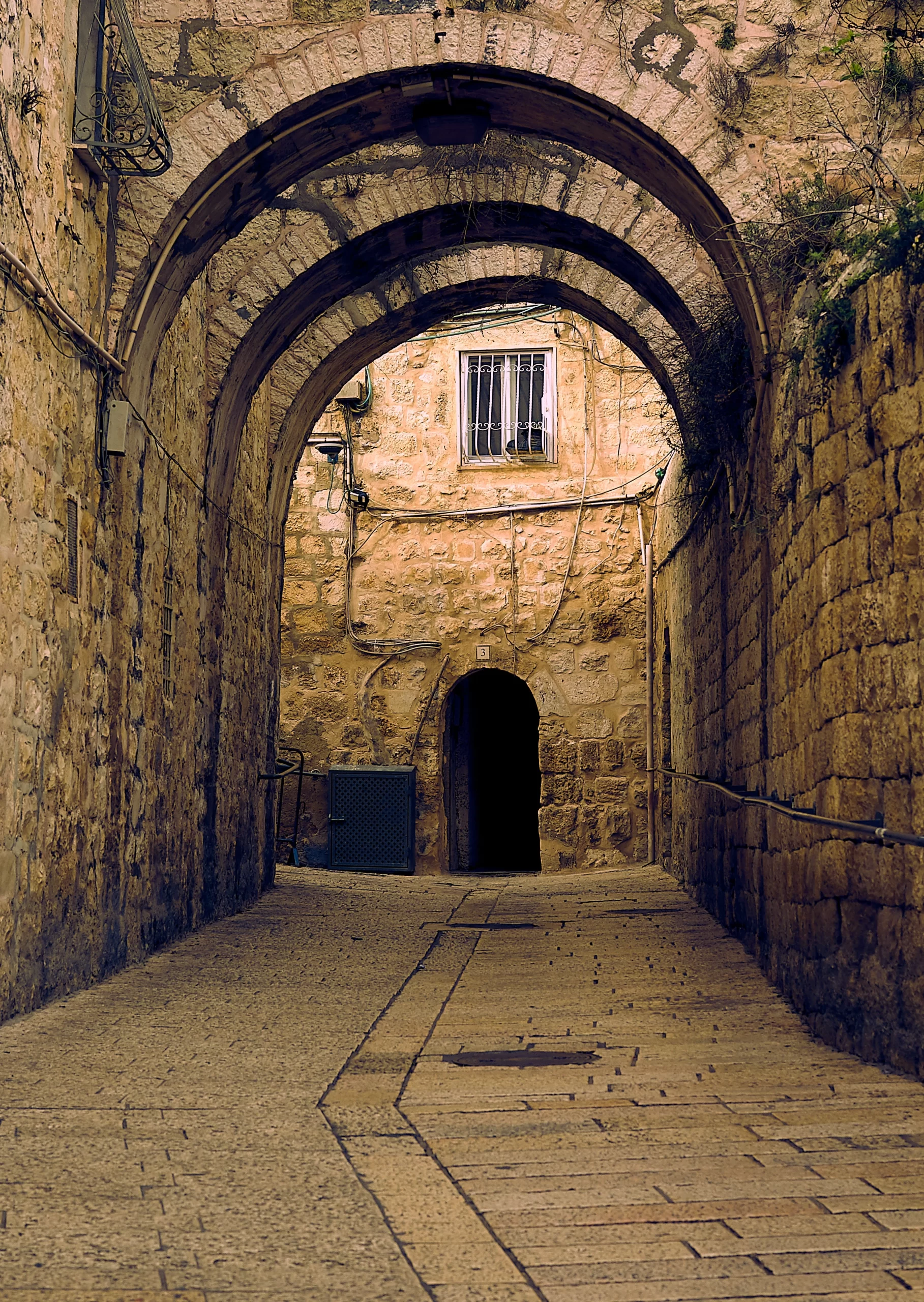
The Jesus of History versus the Christ of Faith
Sifting through centuries of mythmaking, Reza Aslan sheds new light on one of history’s most influential and enigmatic figures by examining Jesus within the context of the times in which he lived: the age of zealotry. Balancing the Jesus of the Gospels against historical sources, Aslan describes a man of peace who exhorted his followers to arm themselves; an exorcist and faith healer who urged his disciples to keep his identity secret; and the seditious “King of the Jews,” whose promise of liberation from Rome went unfulfilled in his lifetime. Aslan explores why the early Church preferred to promulgate an image of Jesus as a peaceful spiritual teacher rather than a politically conscious revolutionary and grapples with the riddle of how Jesus understood himself. Speaker: Reza Aslan
In Depth with Reza Aslan
Reza Aslan responds to viewer questions and comments on topics such as Islamic fundamentalism, the war on terror, and instability in the Middle East. He is the author of “No god but God: The Origins, Evolution and Future of Islam,” “Beyond Fundamentalism: Confronting Religious Extremism in the Age of Globalization,” and “Zealot: The Life and Times of Jesus of Nazareth.” Mr. Aslan is a professor at the University of Riverside (UCR)’s Center of Public Diplomacy at University of Southern California. This interview was broadcast on C-Span on July 6, 2014. C-SPAN Host Peter Slen interviews Mr. Aslan.
The World of Jesus – John Dominic Crossan
I have always thought of the historical Jesus as a homeland Jew within Judaism within the Roman Empire. I have always thought of the historical Paul as a diaspora Jew within Judaism within the Roman Empire. For me, then, Judaism within the Roman Empire has always been the necessary matrix rather than the annoyingly unnecessary background for any discussion of earliest Christianity. For example, you can see that three-layer matrix in the sub-titles of the first and last books above. For the historical Jesus, The Life of a Mediterranean Peasant emphasizes Rome, Judaism, and Jew. The historical Paul, How Jesus’s Apostle Opposed Rome’s Empire with God’s Kingdom, emphasizes Jew, Rome, and Judaism. Whether you start or end with the Roman Empire, the Roman Empire is always there. John Dominic Crossan First, Jesus opposes the Kingdom of God to the kingdoms of “this world.” What “this world” means will be discussed throughout this book, but especially in Chapter 1, whose title, “Empire and the Barbarism of Civilization,” is my translation of the “this world” of Jesus. Second, Jesus is condemned to death by Roman Pilate, in Roman Judea, in the eastern reaches of the Roman Empire. But he never mentions Rome, and he never addresses Pilate by name. He opposes something incarnated in but also far greater than Rome or any other empire. Third, had Jesus stopped after saying that “my kingdom is not of this world,” as we often do in quoting him, that “of” would be utterly ambiguous. “Not of this world” could mean: never on earth, but always in heaven; not now in present time, but off in imminent or distant future; not a matter of the exterior world, but the interior life alone. Jesus spoiled all those possible misinterpretations by continuing with this: “if my kingdom were of this world, then would my servant’s fight, that I should not be delivered” up to execution. Your soldiers hold me, Pilate, but my companions will not attack you even to save me from death. Your Roman Empire, Pilate, is based on the injustice of violence, but my divine kingdom is based on the justice of non-violence. Fourth, the crucial difference—and the only one mentioned—between the Kingdom of God and the Kingdom of Rome is Jesus’s non-violence and Pilate’s violence. But, to return to my first point, the violence of Roman imperialism was an incarnation in that first-century time and in that Mediterranean place of “this world,” that is, of the violent normalcy of civilization itself. Fifth, Pilate is the most important interpreter of Jesus in the New Testament. He recognized the difference between Barabbas and Jesus. Barabbas was a violent revolutionary, so, as Mark 15:7 put it, ” Barabbas was in prison with the rebels who had murdered during the insurrection.” Pilate arrested him along with those of his followers he could capture. But Jesus was a non-violent revolutionary, so Pilate did not attempt to round up his companions. Both Barabbas and Jesus opposed Roman injustice in the Jewish homeland, but Pilate knew exactly and correctly how to calibrate their divergent oppositions. Sixth, Jesus’s response to Pilate did not represent a speaking of truth to power. It was one powerful truth confronting another. It was the powerful truth of non-violent justice confronting the powerful truth of violent injustice. I emphasize the contrast between the Pilate’s Kingdom of Rome as violent repression and the Jesus’s Kingdom of God as non-violent resistance because that juxtaposition is the heart of this present book. It attempts to rethink God, the Bible, empire, Jesus, Christianity, and Rome. Jesus could have told Pilate that Rome’s rule was unjust and God’s rule was just. That would have been true, but it would have avoided the issue of whether God’s just rule was established by human and/or divine violence. So beneath the problem of empire is the problem of justice but beneath the problem of justice is the problem of violence.
Jesus – The Last Week (John Dominic Crossan)
Top Jesus scholars Marcus J. Borg and John Dominic Crossan join to reveal a radical and little-known Jesus. As both authors reacted to and responded to questions about Mel Gibson’s blockbuster The Passion of the Christ, they discovered that many Christians are unclear on the details of events during the week leading up to Jesus’s crucifixion. Using the gospel of Mark as their guide, Borg and Crossan present a day-by-day account of Jesus’s final week of life. They begin their story on Palm Sunday with two triumphal entries into Jerusalem. The first entry, the Roman governor Pontius Pilate leading Roman soldiers into the city, symbolized military strength. The second heralded a new kind of moral hero praised by the people as he rode in on a humble donkey. The Jesus introduced by Borg and Crossan is this new moral hero, a more dangerous Jesus than the one enshrined in the church’s traditional teachings. The Last Week depicts Jesus giving up his life to protest power without justice and to condemn the rich who lack concern for the poor. In this vein, at the end of the week, Jesus marches up Calvary, offering himself as a model for others to do the same when confronted with similar issues. Informed, challenged, and inspired, we not only meet the historical Jesus but meet a new Jesus who engages us and invites us to follow him.
Throwback Satsang + New Music Video Series! This Thursday, September 22, we will premiere a day of conversation and stories with KD recorded live in New York City in 2013 and a brand new music video release of “Namoh” from KD’s ”Live in New York City Vol. 2″ concert video.
In this screening, discussion topics include:
Benefits of chanting
Unconditional love
Everyone everywhere wants the same things
Karma and the concept of sin
Chanting from the heart
Trusting in yourself
Spiritual Consumerism
The real teachers don’t need anything from you
The Grammys
Everything becomes something to let go of
Be the best “you” you can be
Working with chronic pain
Guru, God, and Self are all the same
Meditation
From repeating these names, everything is brought to fulness
There is real unconditional love in the world
Gnosticism – The Gospel of Mary Magdalene – Salvation through Self-Knowledge of the Soul & Mind
The (gnostic?) The Gospel of Mary gives us a glimpse into a radically alternative form of ancient Christianity. One where inner, spiritual knowledge is the key to salvation, where women and men have equal standing based on their understanding of the message of the Savior, and one where the soul must rise above the demonic gatekeepers of the physical cosmos rather than to believe in credal formulas or even the salvific power of the death and resurrection of Jesus. In this Gospel, Mary Magdalene is the true inheritor of the spiritual Gospel of Christ rather than Peter. The latter attacks her solely based on her gender, despite her profound relationship with the Savior and understanding of his secret teachings.
Recommended Readings: Meyer – The Nag Hammadi Scriptures – 978-0061626005 King – The Gospel of Mary of Magdala: Jesus and the First Woman Apostle – 978-0944344583 Tuckett – The Gospel of Mary -978-0199212132 De Boer – The Gospel of Mary: Listening to the Beloved Disciple – 978-0567082640 Brock – Mary Magdalene, The First Apostle – 978-0674009660

